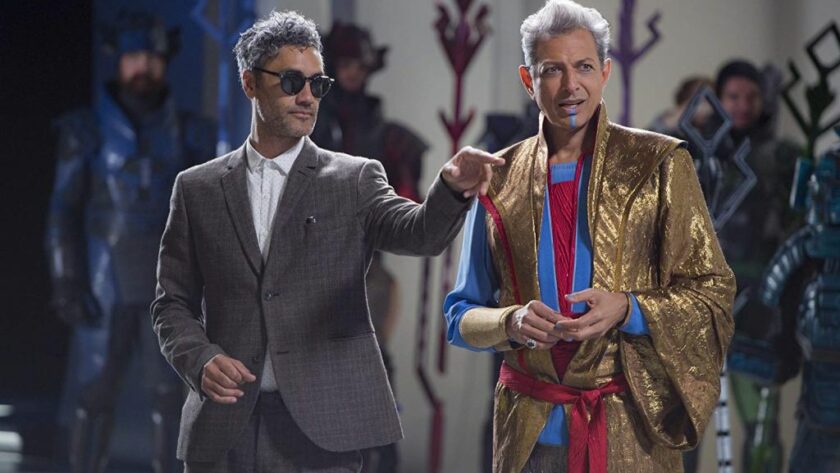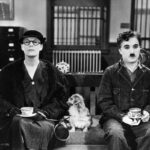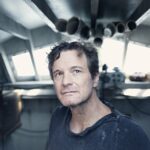A selection of our writers reflect on the directors who stood out this decade; whether for their cultural contribution, the work they’ve done, or the personal impact they’ve had.
Denis Villeneuve
Though quantity certainly does not equate to quality, Denis Villeneuve’s output of six feature films this decade is nothing short of a exhibition of excellent craftsmanship. Captivated by Prisoners (2013), I found myself anticipating every new Villeneuve film, and he never disappoints. His impressive streak of films – Incendies, Prisoners, Enemy, Sicario, Arrival, Blade Runner 2049 – definitively affirms him as one of the breakout directors of the 2010s, as well as positioning him as an influential player in the direction and potential of sci-fi cinema to come. His continual exploration into trauma and violence coupled up with a frequent collaboration with Roger Deakins brings to cinema worlds that are cold, harsh, yet beautiful. The season of winter comes to mind: the frosty forest of Prisoners, Ryan Gosling’s K lying in the snow, the cool colour palette of Arrival, silhouettes against the dawn breaking in Sicario. Psychological isolation and existentialist dread persist throughout his filmography; qualities that, in my opinion, are reminiscent of this decade in the Western world.
Plus, the ending of Enemy alone speaks for itself.
Xinyi Wang
The Safdie Brothers
When I think of the Safdie brothers, I think of anxiety. Right before the 2010s began, Josh and Benny Safdie premiered their second feature, Daddy Longlegs, at the 2009 Cannes Film Festival. The film was heralded as setting a new standard for DIY cinema, a descriptor that would soon encapsulate the body of their work. Now at the end of the decade, with five more films under their belt – Lenny Coke, Heaven Knows What, Good Time, and the soon-to-be-released Uncut Gems – the brothers have established themselves as cult indie film royalty. NYC born and bred, their films embody a New York minute – urgent, colourful, everywhere at once. They cast first-time actors they find on the street, they film without permits, they edit, write, and direct all of their films; the brothers possess a particularly Millennial hustle that allows them to create content constantly, always on their own terms. They represent a new generation of filmmakers, kids interacting with cameras from day one who aren’t afraid to use them. Yet with each film has come a larger budget and increased acclaim, challenging the do-it-yourself attitude that drew them their initial cult following. As big studios clamour to fund their projects, an important question emerges: can the brothers maintain their creative integrity in the face of a hyper-commercial (and confining) industry? Creating meccas out of minutiae, the Safdies have shaped independent cinema over the past decade, while simultaneously representing the precarity of its future.
Maria Duster
Alejandro González Iñárritu
The 2010’s was a decade of many great directors but, in my opinion, none stood out quite like Innaritu. He started off the decade with the heavily-acclaimed Spanish language film Biutiful which cemented him clearly as a visionary and talented director and proved that Babel was not a one-time hit. But it was really his move to American cinema that changed everything. In 2014 and 2015, he directed two completely different kind of films in Birdman and The Revenant but somehow mastered the craft in both of them. He became the first person since Joseph L. Mankiewicz in 1950 to win two consecutive Academy Awards for Directing. While the Awards have been heavily criticized in recent years, both of his wins were absolutely well-deserved. The style of Birdman made it a real stand-out and perhaps one of his greatest feats was getting the best out of Michael Keaton for a fantastic performance. With The Revenant, he almost abandoned dialogue as he let Leonardo DiCaprio, and to a lesser extent Tom Hardy, do what they do best in a beautifully shot film, demonstrating human nature in its core. Both films were visually scintillating, showing Inarritu’s eye for the camera and were brilliantly crafted shot-by-shot. While he did not make another feature-length film this decade, his three efforts were more than enough to make him my pick for the Director of the 2010’s.
Kerem Uzdiyen
Ava DuVernay
When They See Us is a phenomenal television series. Thirty years ago, the boys accused of the 1989 Central Park jogger case were demonised by the American public. Now, their stories were sensitively and shrewdly presented by DuVernay to the world. With the five men exonerated legally and culturally, this is emblematic of what makes DuVernay one of the decade’s most relevant and best directors. She uses her artistic prowess to express the history and predicament of African Americans. My favourite aspect of her direction is how she frames faces and uses space. The audience is confronted with not only the character’s hardship, but her actors are given close-ups that emphasise their emotional journey. Her characters may be facing institutional persecution or a literal prison cell, and she frames them off-kilter to knock the audience off balance too. Although her filmography has reoccurring themes and ideas of black self-determination, social justice and empowerment, DuVernay has a strong hold on projects with different needs. While Selma was a historical drama which celebrated Martin Luther King, it was more spectacular than your typical biography film. Her documentary 13TH was a rigorous examination of the prison-industrial system but enthralling and never losing a watcher’s attention. Considering DuVernay’s initial career as PR in Hollywood, her current projects are a stark contrast.
Emma Davis
Taika Waititi
I would argue, it is impossible to not find utter joy in the work of Taika Waititi, who has stolen the hearts of audiences over the past decade with his deadpan humour and absolute charm. After dabbling in directing TV episodes (including my favourite Flight of the Conchords), this Kiwi actor / writer / director (/ infinitely cool human) truly found his footing during the last decade. There are few directors who manage to find the balance between intelligent humour and the downright silly when it comes to comedy, but here Waititi is a pro. Whether it’s his critically acclaimed Hunt for the Wilderpeople, the big-budget and bigger-studio Thor: Ragnarrok, or the cult-classic What We Do in the Shadows, Waititi evokes childish delight from the audience that never fails to make you smile. His films are bright and bold, and in an industry where films so often profit off being stoic and serious it’s refreshing to see someone unafraid to not take themselves, or their work ,seriously. This, of course, doesn’t mean there is nothing serious to be found in Waititi’s filmography, you need only watch Hunt for the Wilderpeople to know that this director can have you crying with tears of saddness one second, and laughter the next. A true master of humour and drama, this once indie director may have found a bigger fan-base but frankly, he’s more chaotic than ever and I can’t wait to see what he brings in the decade to come.
Alex Dewing









